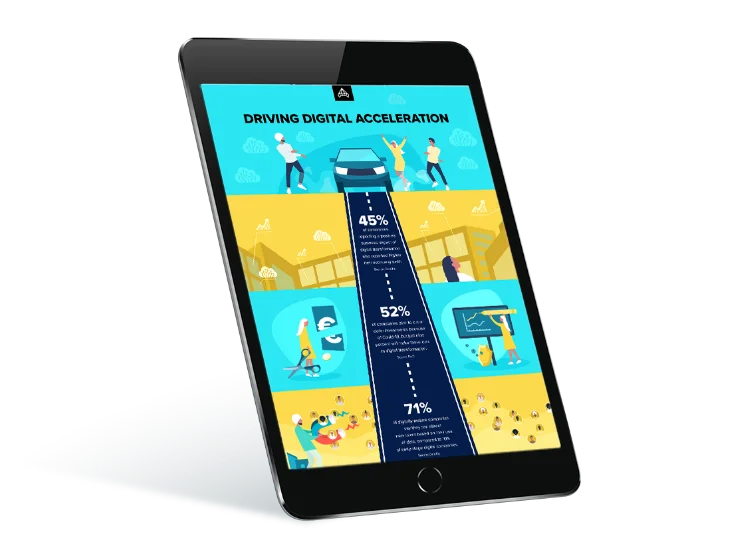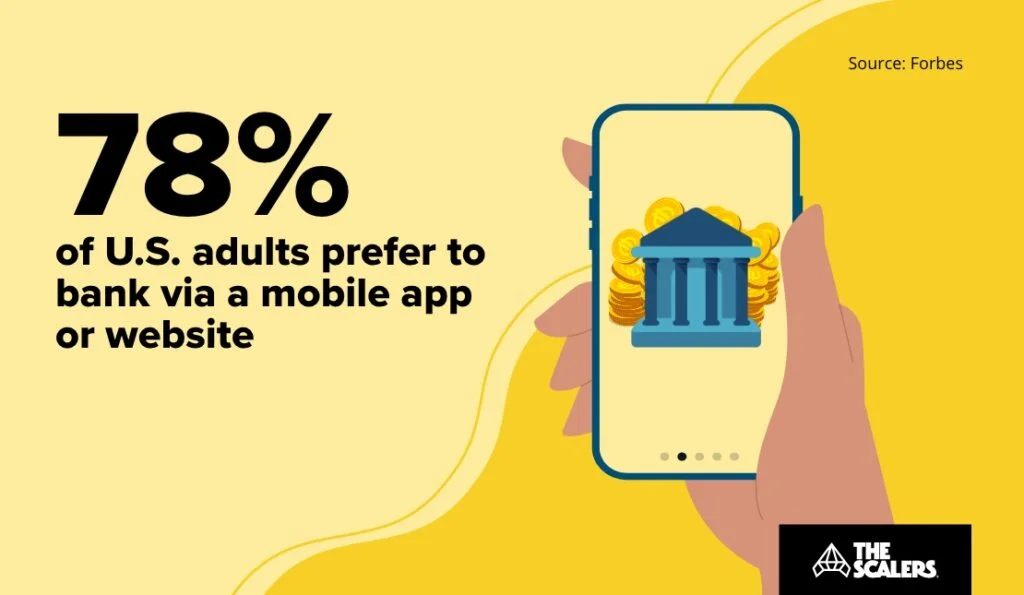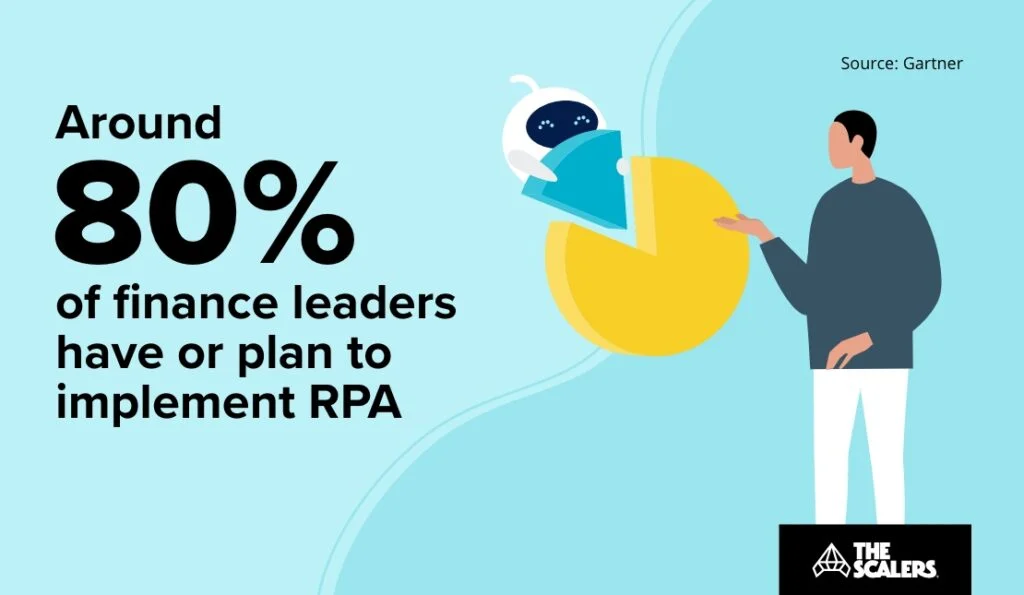Digital transformation in fintech: understanding its impact

Digital transformation has revolutionised the fintech industry, making it more customer-focused and innovative. By offering services online, financial organisations can streamline processes and delight everyone — from stakeholders to end-users. Going digital comes with considerable perks, like driving customer engagement. Plus, fintech companies can now work faster and smarter, giving them a real edge in the marketplace. For some organisations, they might choose to partner with a top financial tech offshoring provider to help them make the transition more smoothly.
But before discussing that, we’re going to dive deep into how digital transformation in fintech is changing the sector at lightning speed and forever altering customer experiences for the better.
Accelerating fintech’s growth through digital transformation
The financial services industry, known for its traditional approach and slow adoption of innovation, has experienced a significant shift due to the pandemic. The outbreak has acted as a catalyst for rapid physical and digital transformation, compelling the fintech sector to rise to the challenge of equipping businesses with robust computing systems.
This transformative period can largely be credited to the swift changes in consumer behaviour and the emergence of new patterns driven by a strong preference for cash-less and contact-less activities. These shifts have forced adaptation within the industry to meet the evolving needs and expectations of customers. The latest fintech stats reveal that the industry has undergone enormous growth.

How digital transformation in fintech empowers SMEs
To ensure the competitiveness of your finance company and cater to consumer demands, it is essential to embrace digital finance initiatives that align with the pace of today’s innovation. With that said, let’s look at some of the main advantages of achieving more digital transformation in fintech for small to medium sized businesses (SMEs):
- Greater lending flexibility
- Channelling digital fintech offerings
- Processing data for operational efficiency
- Simplifying complexities
- Enhanced access to capital
- Scalability and growth opportunities
- Real-time financial insights
- Seamless integration with partners
- Personalised customer experiences
- Risk mitigation and compliance

Don’t get left behind in the shift to digital business
Digital transformation in fintech enables the automation of various processes, allowing for faster and more efficient decision-making. By leveraging data analytics and artificial intelligence, financial institutions can quickly assess loan applications, evaluate creditworthiness, and make informed lending decisions, reducing turnaround time and improving customer satisfaction. Automation also streamlines back-office operations, such as document processing and compliance checks, leading to increased operational efficiency and cost savings.

What’s driving digital transformation
Given that fintech heavily relied on manual processes and face-to-face interactions, the journey towards digital transformation has been a novel experience for this industry. The evolution of the fintech sector has now become a critical business priority, aimed at enhancing customer experience through the introduction of innovative products and services.
The increasing demand for seamless and convenient financial services has fueled the drive for digital transformation in the fintech industry. Customers today expect quick and easy access to their financial accounts, the ability to make transactions on-the-go, and personalised services tailored to their specific needs. To meet these expectations, fintech companies are leveraging emerging technologies to improve efficiency, and deliver a superior customer experience. By embracing digital transformation, the fintech sector is not only adapting to changing market dynamics but also positioning itself at the forefront of innovation in the financial services industry.

The latest digital transformation trends in fintech
Amidst the widespread impact of the pandemic and the surge of digital transformation, the finance sector has undergone profound changes.
As technology continues to evolve and customer expectations continue to rise, it is crucial for fintech companies to stay ahead of the curve and anticipate future opportunities and challenges. Here are just a few of the technologies and trends that are shaping the future of fintech:
- Mobile banking — greater convenience
- AI and ML — automated decision-making
- Blockchain & crypto — streamlining financial processes
- Open banking & API — collaboration and data sharing
- Customer-centric digitalisation — enhancing user experiences
- Cloud computing — scalability, data storage, and flexible access
- Big data — driving data-driven decision-making
- Hybrid clouds — ensuring security, compliance, and efficiency
- Robotic process automation (RPA) — automating repetitive tasks
- Contactless payments — secure and convenient transactions
These trends encompass a range of technologies that have the potential to improve customer experiences and drive innovation. Organisations that leverage these trends will be better positioned to stay competitive and meet evolving customer expectations. While individual trends may not be relevant to your company, by exploring the direction of digital transformation, you can place your organisation in the best position for years to come.

Overcoming the obstacles of digital transformation in fintech
The primary challenge faced by the fintech sector lies in effectively presenting investors and stakeholders with a clear understanding of their proposition. This becomes particularly crucial when their offering deviates from the existing market norms or encounters resistance from a specific customer base. Such obstacles make it challenging to secure funding from commercial investors, who require compelling evidence that fintech digital transformation is innovative and capable of mitigating risks to the greatest extent possible.

Increase innovation and deliver at speed in the Silicon Valley of Asia
LEARN MOREBuilding relationships and trust with clients who are accustomed to traditional financial services providers poses a significant hurdle for fintech organisations. Overcoming the misconception that their innovations compromise security and data management becomes essential. To scale globally with minimal disruptions, fintech companies require a supportive control framework that establishes boundaries. This framework is crucial in ensuring the financial resilience of the fintech business.

These digital transformation challenges become even larger when a fintech company attempts international expansion. The root cause of a company’s failure to scale stems from the inability of fintech businesses to offer the technical solutions needed. However, the right offshore partner can play a crucial role in solving this challenge.
A good offshore partner can build the team you need for rapid digitalisation as well as provide valuable insights, help establish a strong market fit, and ensure compliance with local regulations, thereby increasing the chances of successful international expansion. By choosing the right offshore partner, fintech companies can mitigate risks, enhance their market reach, and position themselves for sustainable growth in the global fintech industry.
In summary
It’s crucial for every organisation to embrace digitalisation as a strategic foundation in order to stay competitive and better cater to their stakeholders.
This means convenience, scalability, and security should rank high on your list of priorities.
Implementing powerful digital transformation initiatives is the fintech industry’s best bet. Whether your finance company is just starting its digital transformation journey or you’ve discovered you need assistance along the way, our expert offshore software developers can help. At The Scalers, the dedicated development teams we build stay with you throughout the entire process. Don’t hesitate to reach out to us to begin your transformation journey today!














